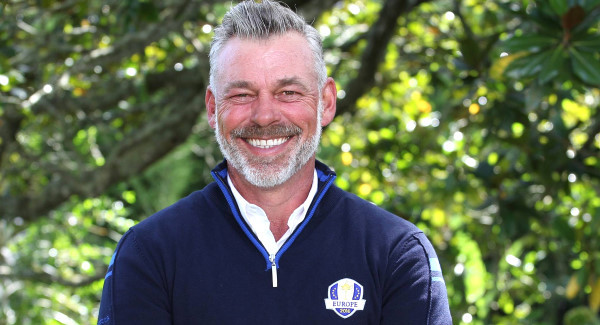Whatever the outcome of the 41st Ryder Cup at Hazeltine, one thing is for certain. Either Darren Clarke or Davis Love will be hailed as a brilliant captain and vital part of their team’s victory.

The man not drenched in champagne by his adoring players will be derided for making poor pairings and woeful wild card selections – which everyone else knew at the time were wrong, of course – and join the likes of Hal Sutton, Tom Watson and Nick Faldo in the captaincy ‘Hall of Shame’.
Such is the lot of the Ryder Cup captain, whose success or failure can come down to the 18th hole of the 28th match over three days of competition between 24 of the best players in the world, over whom they have no direct control.
What they can control are those wild card selections and pairings, with Clarke opting for Lee Westwood, Martin Kaymer and Thomas Pieters and Love selecting Rickie Fowler, Matt Kuchar and JB Holmes before adding Ryan Moore last night after his Tour Championship play-off with Rory McIlroy.
Captain Love has chosen Ryan Moore as the 12th and final member of our team. pic.twitter.com/GMA51Cyqs2
— Ryder Cup USA (@RyderCupUSA) September 26, 2016
Clarke courted controversy by selecting the in-form Pieters over Scotland’s Russell Knox, who was ranked 20th in the world at the time, with Love labelled unimaginative in some quarters for selecting players who finished 10th, 11th and 12th in qualifying.
In terms of pairings, only time will tell if either captain avoids the type of blunder committed by Sutton in 2004, when he insisted on sending out Tiger Woods and Phil Mickelson – who were not exactly the best of friends – in the opening match, an error he repeated in the afternoon even after they had lost to Colin Montgomerie and Padraig Harrington. They lost again and the experiment was over.
For the United States, Paul Azinger’s “pod system” of small groups of like-minded players was deemed a crucial part of their last victory to date in 2008, while Paul McGinley got three wins out of three from the new combination of Justin Rose and Henrik Stenson at Gleneagles, as well as successfully assigning Graeme McDowell and Lee Westwood to look after rookies Victor Dubuisson and Jamie Donaldson respectively.
It's time. The team are here and making their way to the plane. 👍✈️ pic.twitter.com/S8EyU6a6io
— Ryder Cup Team EUR (@RyderCupEurope) September 26, 2016
Clarke has a total of six rookies to handle at Hazeltine, the same number which featured in the 2010 victory at Celtic Manor and the most for an away contest since seven made the team beaten at Brookline in 1999.
Three of those players – Jarmo Sandelin, Jean van de Velde and Andrew Coltart – famously did not feature at all for the first two days as Europe built a 10-6 lead, only for all three to lose their singles matches as the home side staged a remarkable fightback.
Clarke also lost his singles match that day to Sutton and although he is reluctant to pair two rookies together in foursomes or fourballs, the 48-year-old cannot see himself repeating Mark James’s approach.
“I don’t mean any disrespect to the guys that didn’t play until Sunday at Brookline, but the guys are global players nowadays,” Clarke said. “The rookies that we have now are more comfortable in America because they have been playing more over there, so it’s somewhat different to what it was back then.”
As for Love, he knows all about being on the wrong side of an improbable comeback from 10-6 down, the 52-year-old seeing his side lose such an advantage – they also led 10-4 midway through Saturday afternoon – the last time he was captain at Medinah in 2012.
Love was also part of the “Task Force” formed in the wake of the 2014 defeat at Gleneagles and knows the pressure is on to avoid an unprecedented fourth straight defeat, especially on home soil.
Of course, the last time a European side attempted to achieve such a feat was at Valhalla in 2008, which raises an important question. Which 2016 captain will be remembered like Faldo and which one like Azinger?


